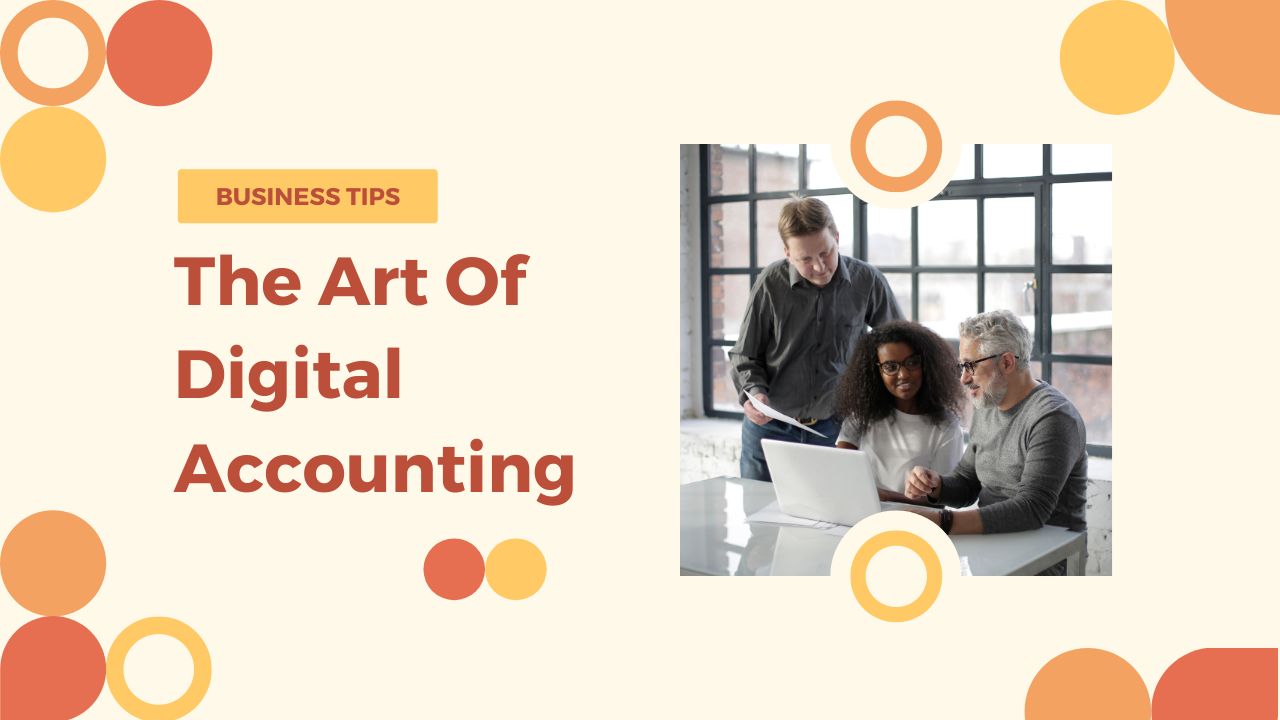Today, technology impacts almost every business department, and the accounting department is no different! Accounting Software has brought progressively drastic changes, which has helped business owners to make crucial real-time decisions and actively keep an eye on various reports. Plus, bookkeeping has become so much easier. Digital accounting is a must-have tool for small, medium, and large firms for the monetary measurement of a business.
Evolution in accounting has introduced us to various digital accounting methods. The owner can opt for appropriate accounting practices according to an organization’s budget, size, operations, and different aspects. The advantages of using the accounting software system are undeniable and remarkable. Thus, multiple industries are adopting digitalization in accounting.
This article will introduce you to digital accounting, its various methods, and the brighter side of choosing it for your business.
What Is Digital Accounting & How Does It work?
Digital accounting is when somebody creates, represents, and transfers financial transactions in a digital format. In other words, instead of using traditional accounting methods and opting for pen and paper for bookkeeping, accountants use a real-time online accounting dashboard that syncs with related departments, to efficiently manage every transaction of a business.
Accountants and bookkeeping professionals use the digital accounting system not just for data entry, but to manage the entire financial transactions happening in a period of time Digital accounting records every transaction into a single interface, and anyone with access can track them easily. Such massive data helps to create a business overview and multiple reports. With minimal effort, owners can look at profit, balance sheet, ROI, monetary growth, investment, loans and credits, cash flow, etc., as the system quickly generates such reports based on real-time activities.
Storing years of data is not a troublesome task with digitized accounting, which is the main perk of this evolved technology.
Elements Of Digital Accounting
After getting a general idea about digital accounting, it is essential to understand the various digital accounting elements because each one functions in a distinguished method.
- Cloud Computing: Due to its easy accessibility and customization, this is a largely accepted digital accounting software system. Users can log in to the cloud computing system from anywhere and on any device connected to the internet.
- AI & Machine Learning: Accounting requires real-time information every so often to forecast intelligent business tactics. AI is one among many examples of technological advancement. The digital accounting system’s successful collaboration with current improvements like artificial intelligence, machine learning, etc., can cultivate businesses rapidly as they work on data and derive patterns to forecast future requirements. Hence, ‘data on demand’ type industries highly ask for AI & ML-based accounting software.
- Bank Reconciliation: The complexity of businesses encourages accounting sectors to go for digitalization. A copious amount of banking transactions create a challenge in generating a perfect balance sheet and error-proof statements. This is when digital software comes in handy because it is eligible to catch and share details from banks directly. This feature can segregate each transaction into a suitable category and reconcile with banks accordingly.
- Real-time Reports: Imagine hyperactive accounting software providing business reports. The data precision and detailed accuracy can help owners construct a transparent environment for companies to establish clear goals and expectations. Such clear-cut information can forecast a company’s future with the help of daily activities. Thus, this feature helps management to create a blueprint for success.
- Smart Purchase order: The accounting system with organized and subtle data on every department can proactively guide users into buying raw materials and other products. In some scenarios, the accounting software directs the digital order system in placing orders to the suppliers with proper specifications and documentation. Hence, digital accounting helps businesses prevent over-inventory, overflow of raw material, over-production, etc., and control expenditures.
Benefits Of Digital Accounting
It is now time to observe the magnitude of digitalization in accounting. Cost reduction, remote availability, hi-tech security, business reports, and strategies are a few of the primary advantages of such technology, which are self-explanatory. However, these are some next-level and significant positive points of the digital accounting tools that industries are gradually paying attention to.
- Increased productivity: The accounting software system enhances the users’ efficiency and saves time, energy, and cost. Maintaining records, finding particular data, creating reports, budgeting, etc., becomes less troublesome. Collecting statements and timely reports (i.e., yearly, half-yearly, quarterly, monthly) is effortless.
- Upgrade & Synchronization: Technology has the power to upgrade according to the need of the hour. The accounting software system can consolidate with other software and work proactively. The system is adaptive when it comes to performance. Hence, integrating with other related programs becomes easier with an online accounting system. These systems have easy upgrade facilities.
- Taxation: In-built tools in the accounting software system make accountants manage taxes easily. The system works constructively and prepares necessary files for taxation on time and, in many cases, reminds the users to submit tax return files. Companies no longer need to hire experts to produce taxation files as they can simply use such robust software.
- Sophisticated job opportunities: Data analysts, accountants, and bookkeepers can widen their horizons and become experts in advising complex financial functionalities. According to Forbes, more use of the accounting software system will encourage accountants and bookkeepers to groom themselves professionally and even become experts in the field.
- Tracking: In the traditional/manual system, keeping track of every transaction and pending payment becomes tedious, and is prone to errors. However, with a digital accounting software system, finding an invoice and making an on-time payment is just easy. The system is responsible for reminding the management of payments that are due and keeping an active record of cash flow.
Sum up
More and more businesses are inclined to use the accounting software system for a better experience and smooth monitoring of financial details. In addition to that, an automated tool has more appeal because it functions without any friction.




